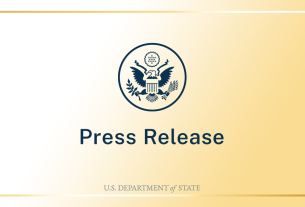|
Getting your Trinity Audio player ready...
|
It is troubling to see that the Indian government has issued new demands to X (formerly Twitter) to remove accounts and posts critical of the government and its recent actions. This is especially bears watching as India is preparing for general elections this spring, and concerns for the government’s manipulation of social media critical of it grows.
On Wednesday, X’s Global Government Affairs account (@GlobalAffairs) tweeted:
The Indian government has issued executive orders requiring X to act on specific accounts and posts, subject to potential penalties including significant fines and imprisonment.
In compliance with the orders, we will withhold these accounts and posts in India alone; however, we disagree with these actions and maintain that freedom of expression should extend to these posts.
Consistent with our position, a writ appeal challenging the Indian government’s blocking orders remains pending. We have also provided the impacted users with notice of these actions in accordance with our policies.
Due to legal restrictions, we are unable to publish the executive orders, but we believe that making them public is essential for transparency. This lack of disclosure can lead to a lack of accountability and arbitrary decision-making.
India’s general elections are set to take place in April or May and will elect 543 members of the Lok Sabha, the lower house of the country’s parliament. Since February, farm unions in the country have been striking for floor pricing (also known as a minimum support price) for their crops. While protesters have attempted to march to Delhi from neighboring states, authorities have reportedly barricaded city borders, and two neighboring states ruled by the governing Bharatiya Janata Party (BJP) have deployed troops in order to stop the farmers from reaching the capital.
According to reports, the accounts locally withheld by X in response to the Indian government’s orders are critical of the BJP, while some accounts that were supporting or merely covering the farmer’s protests have also been withheld. Several account holders have identified themselves as being among those notified by X, while other users have identified many other accounts.
This isn’t the first time that the Indian government has gone after X users. In 2021, when the company—then called Twitter—was under different leadership, it suspended 500 accounts, then first reversed its decision, citing freedom of speech, and later re-suspended the accounts, citing compliance with India’s Information Technology Act. And in 2023, the company withheld 120 accounts critical of the BJP and Prime Minister Narendra Modi.
This is exactly the type of censorship we feared when EFF previously criticized the ITA’s rules, enacted in 2021, that force online intermediaries to comply with strict removal time frames under government orders. The rules require online intermediaries like X to remove restricted posts within 36 hours of receiving notice. X can challenge the order—as they have indicated they intend to—but the posts will remain down until that challenge is fully adjudicated.
EFF is also currently fighting back against efforts related to an Indian court order that required Reuters news service to de-publish one of its articles while a legal challenge to it is considered by the courts. This type of interim censorship is unauthorized in most legal systems. Those involved in the case have falsely represented to others who wrote about the Reuters story that the order applied to them as well.



